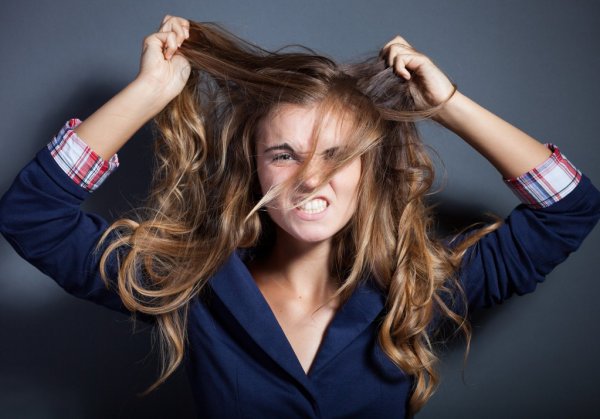How does your hair look in the morning? Most people’s hair will be at least a little messy, that’s understandable, but if your hair is knotted and tangled or you find there’s a lot of it on your pillow because it’s fallen out overnight, there’s a bigger issue at play. The good news is that you can do a lot to protect your hair while you sleep and make these problems much less of a challenge. Read on to find out more. Far from being a luxurious addition to your bedding as it might sound at first, a lot of people actually feel as though having silk pillowcases is a necessity, as it can do so much to help keep your hair protected and strong.
Silk is a very gentle kind of material, so it won’t snag and catch on your hair, even if you move around a lot when you’re asleep. The result is much less hair loss, and, because there’s less friction and pulling, you’ll be less tangled in the morning too. If you use silk pillowcases and still find you’re losing hair during the night (and the day, come to that), then it’s worth speaking to experts at the Harley Street Hair Clinic to see what they would advise you to do.
How does your hair look in the morning? Most people’s hair will be at least a little messy, that’s understandable, but if your hair is knotted and tangled or you find there’s a lot of it on your pillow because it’s fallen out overnight, there’s a bigger issue at play. The good news is that you can do a lot to protect your hair while you sleep and make these problems much less of a challenge. Read on to find out more.
Use A Silk Pillowcase
Far from being a luxurious addition to your bedding as it might sound at first, a lot of people actually feel as though having silk pillowcases is a necessity, as it can do so much to help keep your hair protected and strong.
Silk is a very gentle kind of material, so it won’t snag and catch on your hair, even if you move around a lot when you’re asleep. The result is much less hair loss, and, because there’s less friction and pulling, you’ll be less tangled in the morning too. If you use silk pillowcases and still find you’re losing hair during the night (and the day, come to that), then it’s worth speaking to experts at the Harley Street Hair Clinic to see what they would advise you to do.
Dry Your Hair
A lot of people choose to take their showers at night because it helps them feel ready for bed, and it saves time in the morning when it can be chaotic and busy. However, although there’s nothing wrong with washing your hair (or even just getting it wet if you’re not actually washing it) at night, you’re going to need to make sure it’s completely dry before you get into bed.
When your hair is wet, it’s a lot weaker than normal, so if you go to bed with wet hair, the damage your pillows and movement make will be much worse than if your hair was dry. If you can’t get your hair dry (perhaps because you don’t want to use a hair dryer, which can cause damage itself), then you can invest in some toweling turbans to soak up as much of the moisture as possible and keep your hair protected.
Take Out Your Ponytail
It’s probable that everyone does things that cause damage to their hair without realizing it because they’re such normal things to do, and wearing your hair in a ponytail is exactly the kind of thing to look out for.
When you put your hair up in a tight ponytail, that’s going to cause damage, but of course, sometimes it’s necessary during the day. It’s never necessary at night, though, and even if it seems like it would be a good idea to sleep with a ponytail in because it keeps your hair in one place and, the idea is, it would be less knotty, it’s actually going to cause plenty of damage due to the tension. Plus, it’s really uncomfortable, and if you want to get a good night’s sleep, you’ll need to have your hair as free as possible.


![MAK EVENTS [0594110706] MAK EVENTS [0594110706]](https://freshhope1.org/wp-content/uploads/2021/03/MAK-EVENTS-150x150.jpeg)












